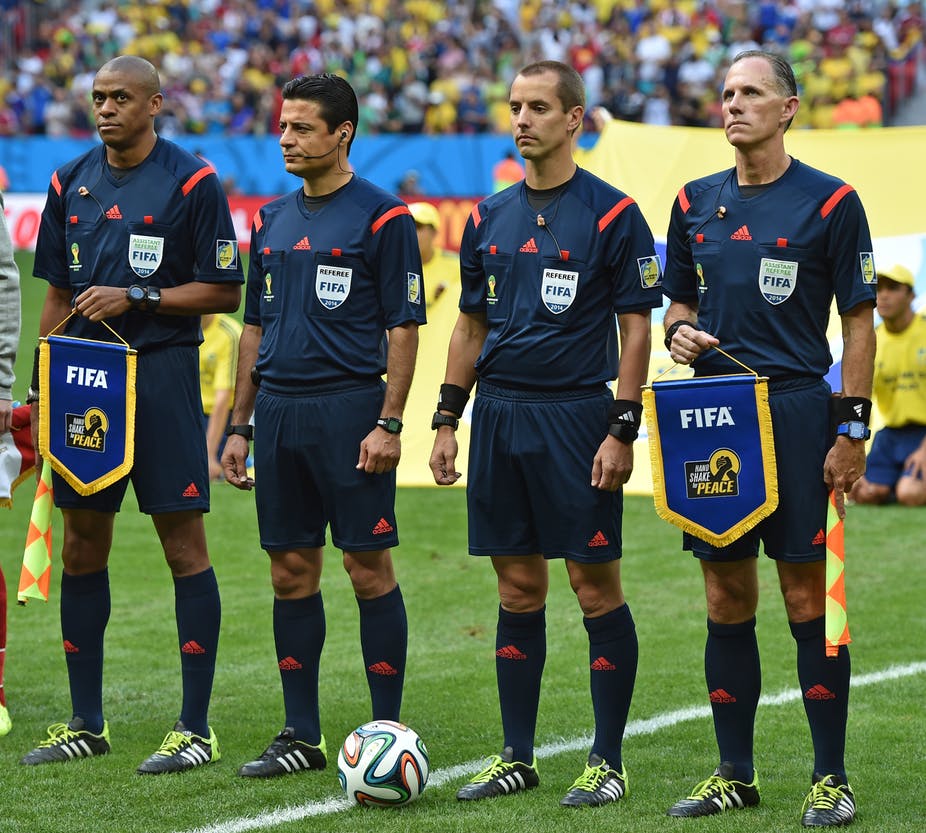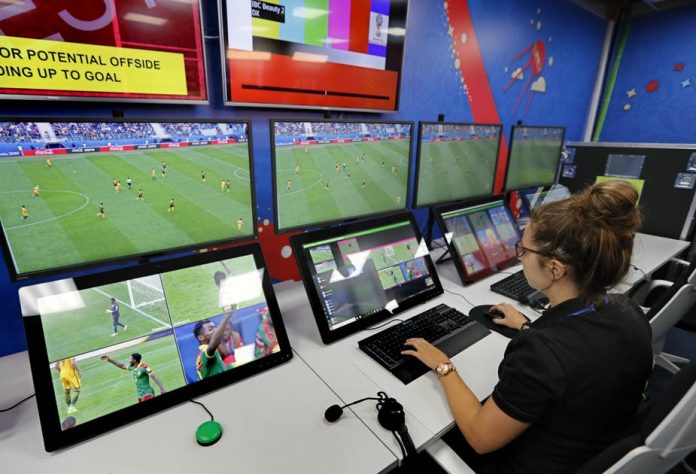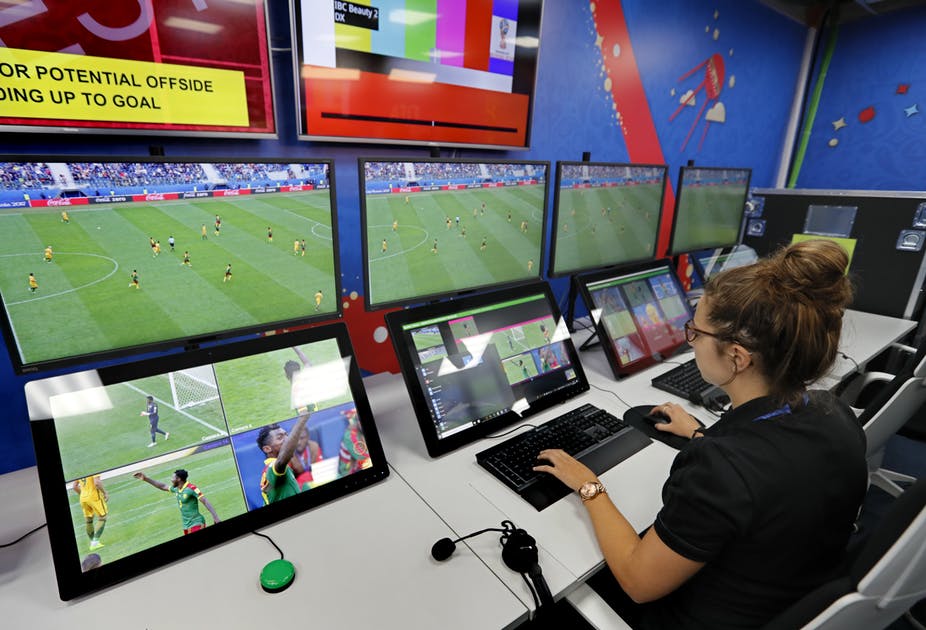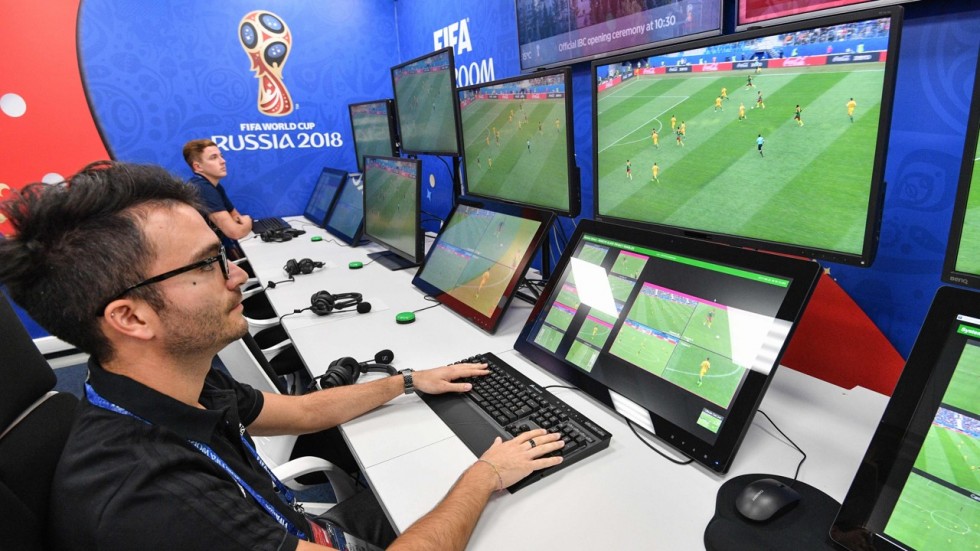![]() The author, Tim Lomas, is Professor of Communications, Howard University. This article was originally published in The Conversation, an independent source of news and views from the academic and research community.
The author, Tim Lomas, is Professor of Communications, Howard University. This article was originally published in The Conversation, an independent source of news and views from the academic and research community.
African fans have always seen match officiating at the World Cup as one reason why their teams fail to do better than they have done so far. Now technology is set to come to the aid of African teams and their fans during the World Cup in Russia.
Earlier this year, football’s umbrella body, the International Federation for Football Associations (FIFA), announced that it will use the Video Assistant Referee (VAR) for World Cup matches in Russia. It is one of the rule changes at the 2018 World Cup. The other allows a fourth substitute when the game goes into extra time.
BBC Sport described the VAR as: Basically like another referee’s assistant – but one that has access to TV replays from a multitude of angles.
A VAR will support the head referee in each of the World Cup’s 64 matches. The video assistant referee team, all top FIFA referees in their own right, are located in a centralised video operation room in Moscow. The system involves them watching the action remotely and then drawing the match referee’s attention to officiating mistakes.
 Described as an “historic step for greater fairness in football”, the VAR will aim to reduce unfairness caused by “clear and obvious errors” or “serious missed incidents” in relation to:
Described as an “historic step for greater fairness in football”, the VAR will aim to reduce unfairness caused by “clear and obvious errors” or “serious missed incidents” in relation to:
Goals and offences leading up to a goal.
Penalty decisions and offences leading up to a penalty.
Direct red card incidents only.
Mistaken identity (when the referee cautions or sends off the wrong player of the offending team).
The VAR is, particularly, intriguing because a year-long study by Belgian University KU Leuven shows that the VAR increases officiating accuracy from 93% to 98.8% and time lost using the system is just an average of 55 seconds. The university study is based on over 1,000 games where the VAR was used.
Rectifying poor calls
While, several analysts have focused on the VAR rectifying poor calls during matches at the 2018 World Cup, few point to why African fans (along with fans of other less favoured teams) welcome the use of the VAR. African fans have been alleging biased refereeing decisions for years at the World Cup – a case in point was in Italy in 1990 when Cameroon were controversially ousted by England. Two arguable calls went England’s way in that memorable quarter final against Cameroon prompting protests and riots in Cameroon by frustrated fans.
At the 1998 World Cup in France, match officials contentiously overruled two Cameroon goals in a game that Cameroon finally drew 1-1 with Chile, sending the African team home after the first round. Many Africans still believe that the officials were wrong to overrule those goals.
At the 2014 World Cup in Brazil, African fans felt that Nigeria were on the receiving end of particularly poor, “biased” refereeing in their match against France. Perhaps, with the VAR, results would have been different in each of those cases.
 Social perception
Social perception
Austrian psychologist Fritz Heider’s attribution theory partly explains why African fans feel hard done by. More than 50 years ago, Heider wrote a treatise on the processes that impact social perception, on how ordinary people explain events as they do.
That treatise is an excellent tool for how the African World Cup fan explains the World Cup and failure of African teams.
This means that Cameroon’s victories on the way to meeting England at the 1990 World Cup were attributed to the team’s great play, and their ability, among other virtues. The African fans would most likely have cited forward Roger Milla‘s brilliance, the team’s collective speed and their individual talent as reasons for Cameroon’s victories.
However, they would not attribute the defeat against England to England’s talent, skill, tactics or other dispositions. For negative results like that, Heider informs us, attribution is no longer made to dispositions but to situations. Thus, the attribution or causes become poor match officiating, the systemic racism that denies African teams a chance, and so on.
 Fans’ rationale
Fans’ rationale
Heider’s attribution theory provides us ways to understand the rationale of the African fan at the World Cup. However, that’s about to change with the introduction of the VAR. Rather than concluding that a non-African referee discriminates against Africans, the VAR becomes the check against such anticipated discrimination.
Thus, the VAR will not only get calls right, it will make things fair and do so by creating an impression of fairness. At least, attributing defeat or failure to refereeing may become a thing of the past. Although, Heider argues, there could be newer attributions. This time, however, newer attributions may be the weather, the hotel, or other perceived disruptions.
Those are somewhat more palatable than blaming match officials. One thing we know is that improvements to the game often advance fairness. FIFA’s decision to play the final two group games simultaneously reduced possibilities of fixed results after Germany and Austria were widely believed to have fixed the result of their game at the 1982 World Cup which eliminated Algeria. So welcome to the VAR.


 Social perception
Social perception Fans’ rationale
Fans’ rationale

